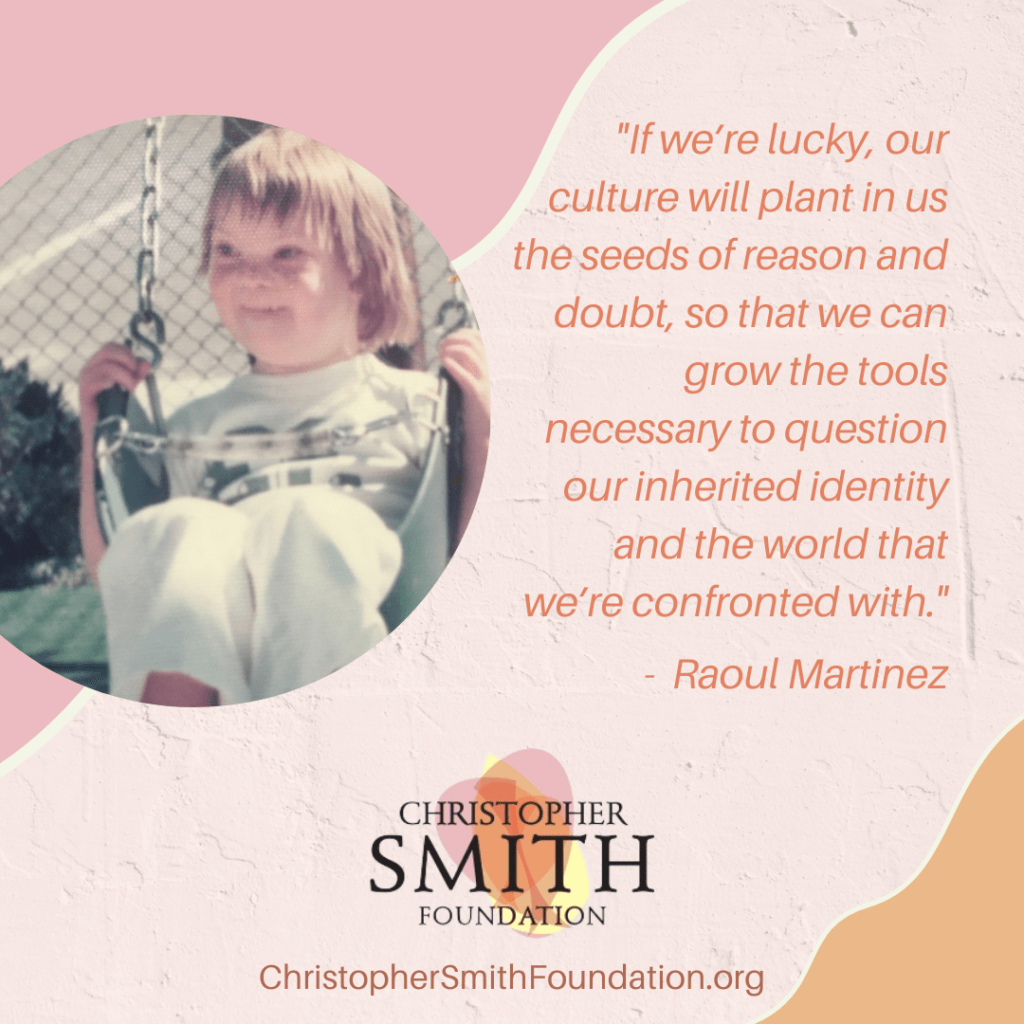The ups and downs of Downs
If you want to feel good and know what world peace and optimism is, you must first take a lesson form the most misunderstood and neglected people in human history, folks with intellectual and developmental disabilities and their resilient parents.
Most parents are introduced to their children’s disabilities by medical professionals, as was the case when my son Christopher was born with Down syndrome. “Put him in a place that will care for his special needs and forget about him I was told; he isn’t expected to live long anyway, go on with your life.” Although these words were spoken over 40 years ago, they are seared in my brain. Statements like the one told to me are sadly made all too often, yes, their origins came from the dark ages when “defectives” were considered not worthy of life, but sadly, in speaking to today’s new young families, similar words are still spoken.
A few weeks ago, while flipping through the channels, I happened on a Netflix documentary titled “The Grown-Ups,” a story delving into the life of a few young adults with Down syndrome in a Chilean day program. It was funny and heartbreaking at the same time, and illuminated the legal, financial, and societal restrictions that diminish the freedoms of developmentally disabled populations in many countries.
Synopsis:
For almost their entire lives a group of forty-something classmates have grown up together and are reaching the age of 50 with varying degrees of frustration. Anita, Rita, Ricardo and Andrés feel that the school they attend for people with Down Syndrome is confining; they long for new challenges, greater independence, and more personal space. Director Maite Alberdi’s observational approach is warm and compassionate, allowing the characters to voice their innermost longings and aspirations.
Their engaging story is a mixture of heartache and humor and hope for greater understanding of people with Down Syndrome, or anyone whose perceptions and abilities are different from “the norm.” It was Romeo and Juliet meet contemporary soap opera and I laughed and cried through the story. The title is laced with irony, since this gently stirring, empathetic study of middle-aged students at a school for individuals with Down syndrome shows them to be stuck in a tragic state of limbo. Mature enough to want the pressures and privileges of independent adulthood, yet emotionally and financially ill-equipped to pursue them alone, they’re ultimately failed by a system that treats them as homogeneously disabled. The story is movingly bittersweet. It’s impossible not to feel for Anita, who is achingly tired of an entire lifetime spent at school and pins all her happiness on an unlikely marriage; at the same time, there is much humor, from Ricardo’s mischievous buying of votes when campaigning for school president, to Andre’s ladling Casanova charm and Rita’s awkward attempts to mimic the others’ romantic behavior.
I am amazed, in this enlightened age to find that entire countries have laws that legally prohibit people with Down syndrome and other disabilities from living a life of their choosing. To watch this documentary, was to take a giant step into the abyss.
Enlightened parents rise and fight against disabilities in many of the same ways people fight a disease, like cancer. Children and young adults with disabilities are often spoken of as “battling” or “overcoming” disabilities, not “adapting” to them — even less likely “embracing” them. In accepting our children and fighting for their rights we become better people.
Had Christopher asked to marry the woman of his dreams I would have thrown the biggest party, but with all his limitations, he had little to no concept of the natural way of the world. What he did better than most, was to love unconditionally. We all have disabilities, his were out in the open, mine hidden away.

